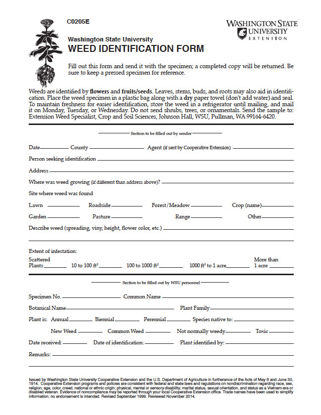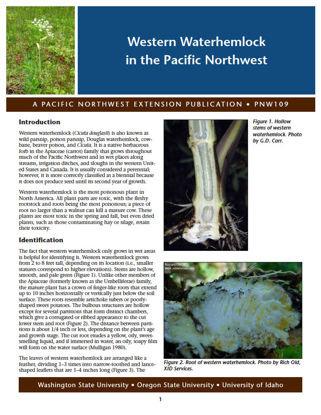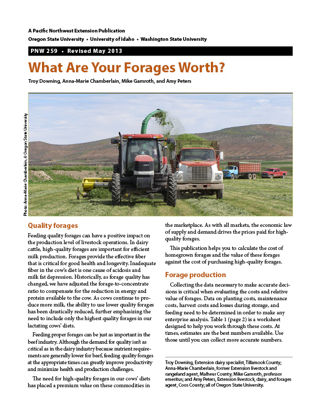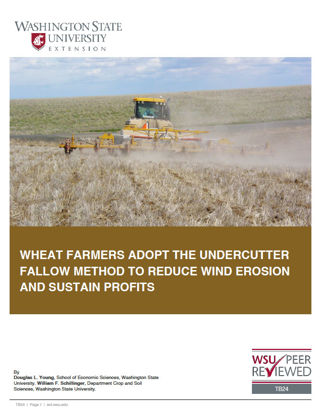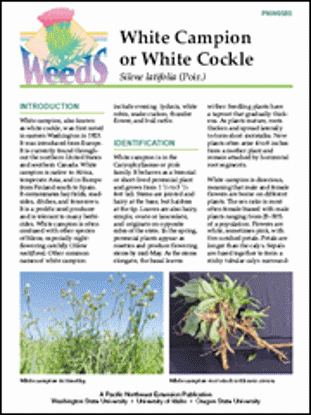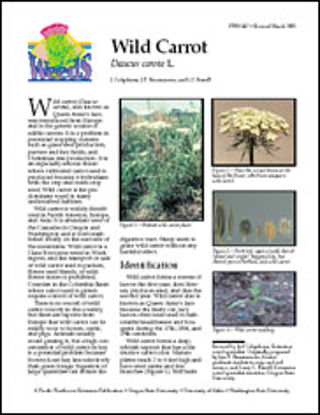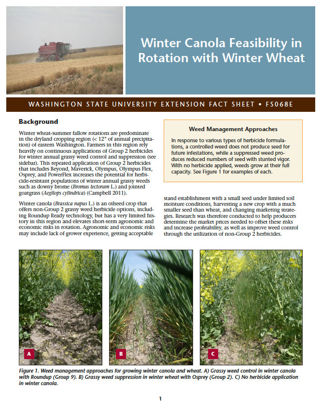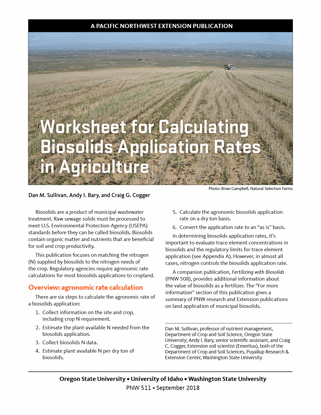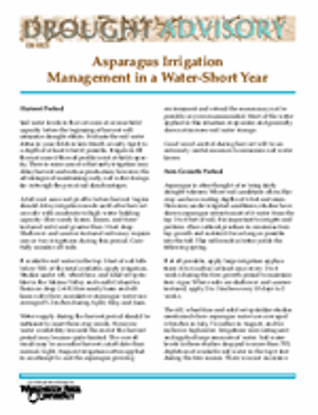You have no items in your shopping cart.
Plants
Plants
Weed Identification Form
Print out and follow the directions when you want to mail a problem weed to WSU Extension for identification. 1 page form. ...
$0.00
Western Waterhemlock in the Pacific Northwest
Western waterhemlock (Cicuta douglasii) is the most poisonous plant in North America. This publication provides identifiers to assist in avoiding the toxic plant, including ways to distinguish it from ...
$0.00
What Are Your Forages Worth?
Designed to help dairy farmers calculate the costs of homegrown forages and compare them to the costs of purchasing forages. Presents typical per-acre costs of establishing, producing, and harvesting ...
$0.00
Wheat Farmers Adopt the Undercutter Fallow Method to Reduce Wind Erosion and Sustain Profits
Excessive tillage—especially in the low-precipitation wheat production region of the Inland Pacific Northwest—causes blowing dust, which results in soil loss as well as air quality degradation. Yet mo ...
$0.00
White Campion or White Cockle
White campion, also known as white cockle, contaminates hay fields, roadsides, ditches, and fencerows because of its high rate of seed production and tolerance to many herbicides. This publication pro ...
$0.00
Wild Carrot
An abundant seed producer, this weed grows in meadows, pastures, along roadsides, and in noncrop areas. Also known as Queen Anne's lace, wild carrot is listed as a Class B noxious weed in Washingto ...
$0.00
Winter Canola Feasibility in Rotation with Winter Wheat
This fact sheet is designed to help farmers determine if it is economically feasible to produce winter canola in rotation as an alternative to winter wheat. Rotating to canola has risks associated wit ...
$0.00
Worksheet for Calculating Biosolids Application Rates in Agriculture
Biosolids are a byproduct of municipal wastewater treatment. Raw sewage solids must be processed to meet U.S. Environmental Protection Agency standards before they can be called biosolids. This worksh ...
$0.00
WSU Drought Advisory: Asparagus Irrigation in a Water-Short Year
The primary water absorption root zone for asparagus is down three to four feet in irrigated fields. Fill root zone early when water is short. Weed control becomes especially important in a drought ye ...
$0.00

